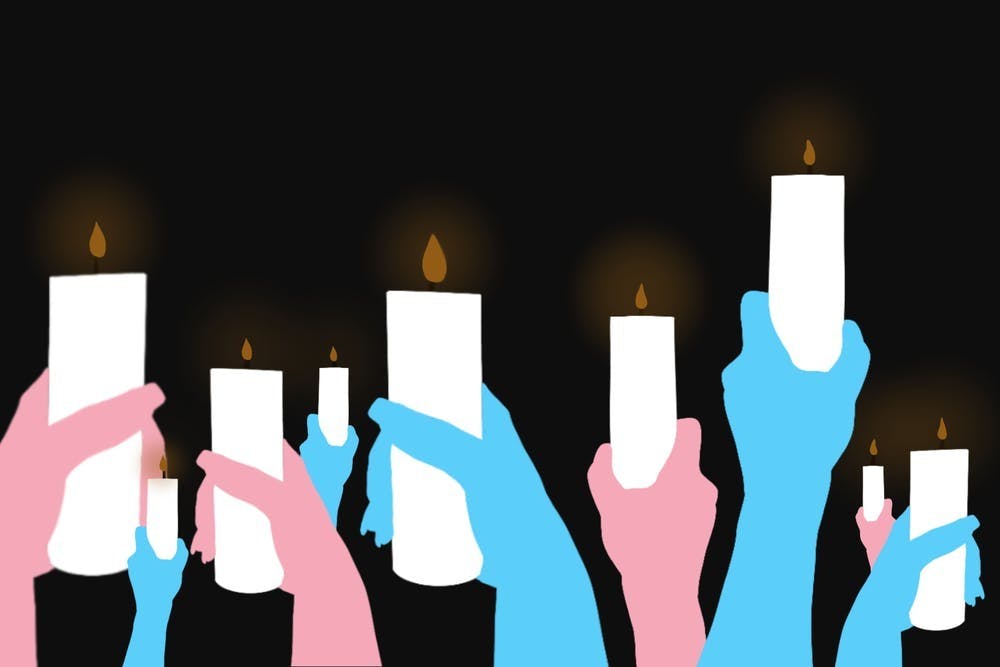The Office of Multicultural Student Affairs and other student organizations planted transgender pride flags on Davis Field Thursday to honor transgender lives lost around the world. The event also highlighted violence toward transgender people everywhere.
The event was held in observance of Trans Day of Remembrance (TDOR). The small pride flags put out on Davis Field were symbolic of lost transgender lives. The event brought together students from organizations such as Individuals Respecting Identities and Sexualities (IRIS) and the Trans Student Alliance (TSA).
At the event, attendees gathered in a circle and honored 375 transgender people that were murdered worldwide. Of those 375 people, 53 were murdered in the U.S. The attendees read off names of the murdered Americans and read a poem to honor the lives lost.
“I think it’s important to just acknowledge their importance to us as a community, and then also, a lot of trans people who have been murdered, their family might not be remembering them in the way that they would want to be remembered. And so, I feel like it's important that someone, somewhere, says their name and remembers them,” said Victor Ponds, a fourth-year environmental science student and communications director for IRIS.
Trans Day of Remembrance is observed annually on Nov. 20. Caroline Wallace, the assistant director for LGBTQIA+ education in the Office of Multicultural Student Affairs, said TDOR raises public awareness about hate crimes against transgender people and publicly mourns the lives of transgender people lost.
“Trans remembrance is a day that’s been going on for, I guess 30 years now, just to acknowledge the importance of understanding that hate violence against trans people is still epidemic, and also to honor people who sometimes don’t get honored by their families,” Wallace said.
Wallace said many of the international lives lost are listed as “no-name” or “anonymous,” so there is no way of knowing if those individuals were honored in the way that they would have wanted.
"It's very dangerous to be trans," Sophie Luna, a fourth-year geology student, said.
Luna, logistics director of IRIS and TSA vice president, said a lot of people just don’t get what it means to be transgender and how the world treats transgender people.
“It’s somber, and it’s hard, but I think there’s also Trans Day of Visibility in March, which has the purpose of saying that, 'We are still here,' for trans folks,” Wallace said.
Wallace said transgender individuals are still here, still thriving and still living, and there is joy to be found in the transgender experience.
The Harriet Hancock LGBT Center, based in Columbia, has a crisis hotline for transgender students in need and other resources, such as hormone replacement therapy and legal name change services. The number, run by Trans Lifeline, is open from 1 p.m. to 7 a.m. every day of the week. The number is 877-565-8860.
A list of other local South Carolina groups that support LGBTQIA+ students can be found here.

